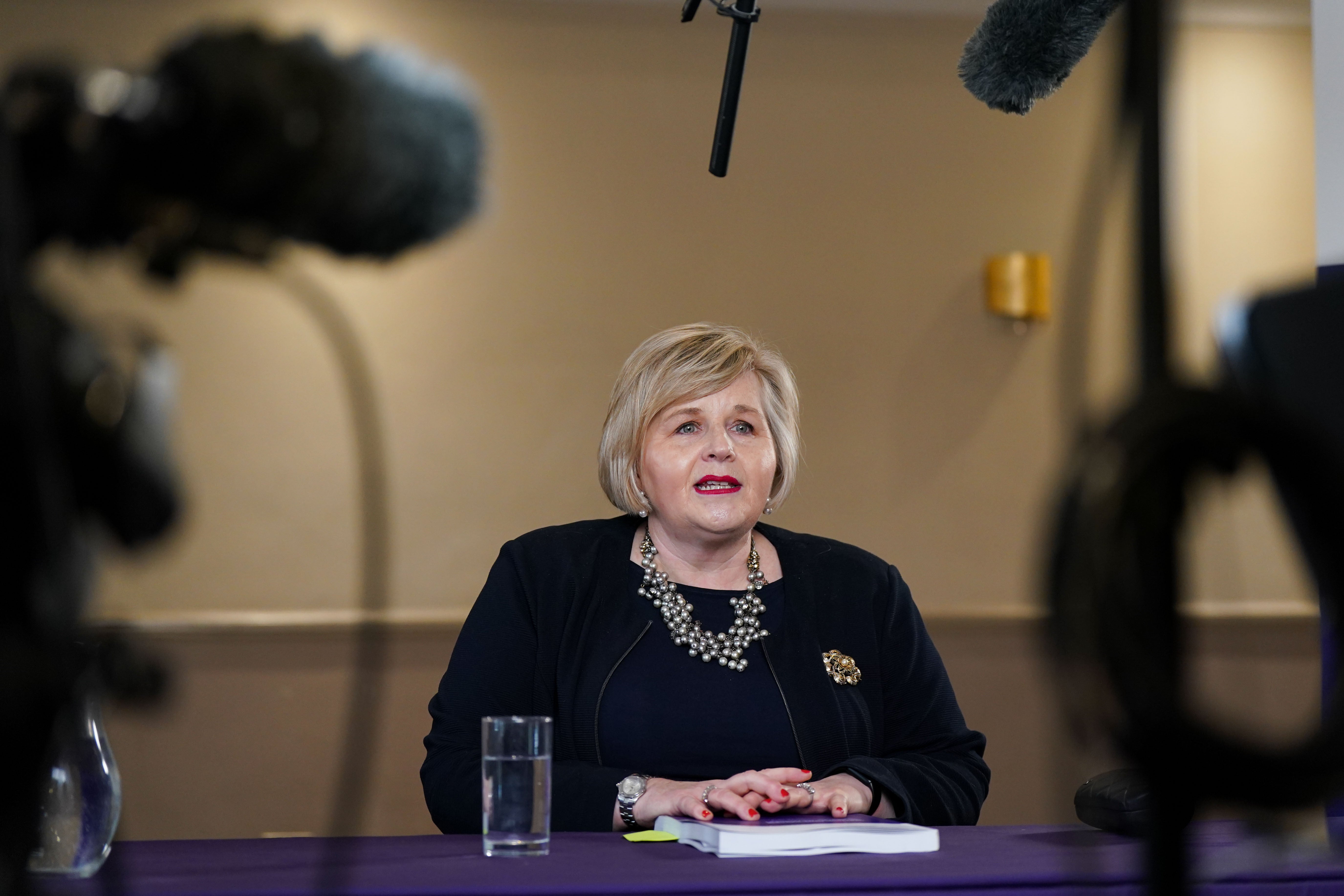Inquiry into major UK maternity scandal slams NHS for failure to consult Black and Asian families
Investigation into death of babies at NHS trust triggered by report in The Independent has involved 250 white families – but only 20 from ethnic minorities

Your support helps us to tell the story
From reproductive rights to climate change to Big Tech, The Independent is on the ground when the story is developing. Whether it's investigating the financials of Elon Musk's pro-Trump PAC or producing our latest documentary, 'The A Word', which shines a light on the American women fighting for reproductive rights, we know how important it is to parse out the facts from the messaging.
At such a critical moment in US history, we need reporters on the ground. Your donation allows us to keep sending journalists to speak to both sides of the story.
The Independent is trusted by Americans across the entire political spectrum. And unlike many other quality news outlets, we choose not to lock Americans out of our reporting and analysis with paywalls. We believe quality journalism should be available to everyone, paid for by those who can afford it.
Your support makes all the difference.An inquiry into maternity care failings at an NHS trust that left dozens of babies dead or brain-damaged is “wholly insufficient” because only a fraction of Black and Asian women have come forward, its chair warned today.
Donna Ockenden, who is leading a review into Nottingham University Hospitals NHS Trust after The Independent uncovered poor care over more than a decade, urged hundreds more families to make contact.
The senior midwife, who also led the flagship review into failures at Shrewsbury and Telford Hospital NHS Trust, suggested the health service must do more to increase the number of responses from ethnic minorities if the trust is to learn from the scandal.
Less than 20 families from Black and Asian communities are currently involved in the inquiry, compared to more than 250 white families, The Independent understands.
It is understood letters have only been sent out in English, while Ms Ockenden pointed to examples of women being unable to access translation services and expectant Muslim mothers being turned away if they objected to male sonographers.
She said the communities’ “mistrust” towards the trust had “deepened”, leaving the review team “climbing a mountain” to engage with them.
Her warning comes after a national report into maternal and neonatal deaths warned last week that the risk of maternal death was four times higher for Black women compared to white, while Asian women face a twofold difference.
Ms Ockenden told The Independent: “As the review chair, [I believe] the current situation [on response rates] is wholly insufficient.
“These numbers are insufficient, both to say that we have listened to women’s voices and also insufficient for the learning that the trust has to do as regards their own population.”
In December last year, the trust sent out 1,375 letters to families who they deemed eligible to have their cases reviewed.
The trust and NHS England have taken the lead in contacting families so the inquiry team is not able to send out letters directly. Overall, less than 25 per cent of families have responded.
The Independent can reveal that just 5.5 per cent of families from an Asian background who were contacted have responded, while the response rate was just 10 per cent among Black families. The proportion of white families who have responded to the call-out is notably higher, at 28 per cent.
According to the most recent figures from the Office for National Statistics, 14 per cent of residents in Nottingham identified as of Asian background in 2021, while 10 per cent identified as from a Black ethnic background. Sixty-five per cent identified as white.
Ms Ockenden, who took over an inital NHS led review in September last year following a campaign from families, warned in a letter to the hospital that trust had “progressively worsened rather than improved” among Black and Asian communites.
She flagged new concerns over the treatment of Urdu-speaking women, including an example of one who did not speak English and had no option but to call her mother in Pakistan to translate when she needed an emergency casearean.
Have you been impacted by maternity care in Nottingham? Are you of black, Asian, or minority ethnic background? reach out at rebecca.thomas@independent.co.uk

Other reasons she gave for the deterioration in communications included:
- Women reporting to the review “they don’t hear me, or see me or my family”
- Staff raising concerns over plans to reduce Urdu language maternity appointments for women from 30 minutes to 20 minutes to “free up more midwives”
- These staff saying they “did not feel listened to” and “would have been left with an impossible task to provide safe antenatal care in the reduced time”
- Muslim women reporting being given male sonographers and if they raised objections were sent away
- Women struggling to access language translation from the trust
Her letter said: “We will continue in our efforts to ensure all women and family voices are heard but you will appreciate our work is taking place against a very difficult background.
“I look forward to hearing from the trust as to the next steps it will take to ensure the content of my letter contributes to the necessary improvement in the provision of maternity services in Nottingham.”
Michelle Rhodes, chief nurse at Nottingham University Hospitals NHS Trust, said: “We know more must be done to ensure the voices of women from all the communities we serve are heard, and we welcome feedback from Donna Ockenden and her team.”
She said a “taskforce” of midwives, doctors, researchers, advocates and minority ethnic staff and families has been put together to address the concerns highlighted by Ms Ockenden.
The trust’s director of midwifery will also be working with community groups “in the coming weeks”, Ms Rhodes added.
Ms Ockenden added: “As a review team, we are deeply committed to hearing and amplifying the voice of anyone who wants to speak to us as part of this review that we know about inequalities in maternity care, particularly around deprivation and ethnicity for almost 20 years now.”
“I recognise that we are climbing a mountain in terms of developing trusting relationships with local communities, because there’s been that mistrust for so long.”
In 2020 an exposé by The Independent found evidence of repeated poor care, spanning a decade, at Nottingham University Hospitals NHS Trust, with parents forced to fight to discover the truth about what happened to their children.
The investigation, with Channel 4, found 46 cases of babies who’d been left with permanent brain damage, 19 still-births and 15 deaths.
A major review was commissioned in July 2020. However, this review has since been superseded by the new independent review led by Ms Ockenden.
Within months of the new review being launched, hundreds of families came forward. The Independent later revealed the number of cases to be investigated is expected to hit at least 1,500, which could make the probe the biggest ever faced by the NHS.
Last year, the Care Quality Commission told the trust it must make “significant and immediate improvements” to its maternity services as it said women and babies may not be safe.
In January, the trust was fined a record £800,000 sum for “gross failings” which led to the death of baby Wynter Sophia Andrews just 23 minutes after her birth. An inquest found she had died from hypoxic ischaemic encephalopathy – a loss of oxygen flow to the brain – after she was born by Caesarean section in September 2019.
Any families who would like to reach out to the review team can contact the Ockenden review here, email nottsreview@donnaockenden.com or call 01243 786993

Join our commenting forum
Join thought-provoking conversations, follow other Independent readers and see their replies
Comments